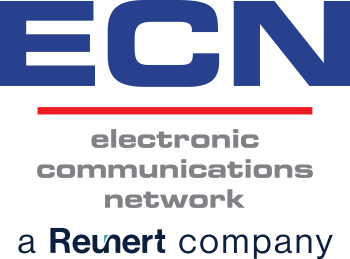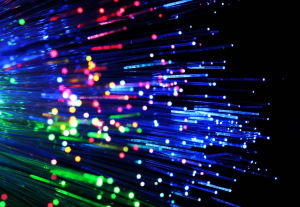From the advent of the mobile phone, there has been a supporting network which started with the first generation – 1G – and has evolved alongside cellular technology to the current network, 5G or the 5th generation cellular wireless.
Here are the most frequently asked questions surrounding the 5G network answers
Some of the biggest advantages of the 5G network include bigger channels, lower latency and the capability to connect many more devices. Here is a look at all you need to know about the 5G network.
Q: Why does 5G need fibre optic?
A: Using wireless transmitters, 5G will be able to transfer data to mobile devices, and many of these transmitters will connect to the internet through fibre optic cable. Fibre will allow you to enjoy the full experience of 5G which includes the provision of secure, scalable, reliable connectivity transmitting massive loads of data at enhanced speeds.
Q: How does 5G work?
A: This network, as with the current 4G LTE network, is OFDM (orthogonal frequency-division multiplexing)-based and operates on the same mobile networking principles. However, the new 5G NR (New Radio) air interface will enhance OFDM for more flexibility and scalability.
Q: Will 5G be better than fibre?
While the 5G network brings with it many benefits – particularly high speed – it will take some time before it can rival the existing fibre networks. Fibre will remain the predominant form of communication for the majority of businesses, but 5G will play an important role in the Internet of Things.
Q: Will 5G make WiFi obsolete?
A: Most expert believe that 5G and WiFi will continue to co-exist for the foreseeable future, with the two networks complementing each other rather than competing. Currently, WiFi – particularly fibre optic connectivity – provides the fastest, most affordable internet connection for home and office use.
Q: What is faster than fibre optic?
A: No wireless technology is faster than delivered connectivity, although wireless technology does require less infrastructure. 5G technology is also affected by weather and environmental issues, where fibre optic connections are not.
Q. What are the benefits of 5G?
A: As the latest mobile network support, 5G will allow for the connection of a wide variety of devices beneficial for personal and business use. The 5G network brings with it enhanced performance, efficiency and cost, effectively redefining industries from retail through to entertainment – and everything in between.
Read more: What are the differences between 5G and fibre optic?
Q: What are some of the differences between 4G and 5G?
A: There are several differences between 4G and 5G, namely:
- 5G is a unified platform and more capable than 4G
- 5G uses spectrum better than 4G
- 5G is faster than 4G
- 5G has more capacity than 4G
- 5G has lower latency than 4G
Q: What is a private 5G network?
An added benefit of the 5G network is the private 5G option or next generation Local Area Network (LAN). Using the 5G technology, a dedicated network can be created to offer unified connectivity, optimised services and secure communication.
Read More: What is a private 5G network?
Q: Which industries will benefit most from the 5G network?
The benefits of 5G across almost every industry are only being realised, and as network capabilities improve, industries will discover innovative methods through digitisation that give a competitive edge and advance every sector.
Read more: Which industries will benefit most from the 5G network?
Q: What are the disadvantages of 5G?
5G Fequency is interrupted by physical obstructions such as trees, towers, walls and buildings and the costs related to the development of 5G infrastructure or adaptations to existing cellular infrastructure will be high. While 5G might bring about real connectivity for the predominantly urban areas, those living in the rural settings will not necessarily benefit from the connection.
Read More: 6 Disadvantages of 5G
Q: How 5G plays an important role in the Internet of Things (IoT)
These two advancements in internet and technology will work together to drastically improve various sectors of community in a number of ways. Here’s a look at some of the drastic changes we can expect to see.
Read More: 5G and the Internet of Things
Q: What are the differences between 5G and fibre optic?
Both communication networks come with a host of associated benefits but there is a misconception that 5G technology will replace fibre. The reality is that 5G wireless networks and fibre optic networks will actually complement each other, both offering a cohesive internet experience.
Read More: 5G and Fibre
Q: What are the key features of 5G?
To get a baseline understanding of why 5G is the hottest topic in terms of network connectivity, here’s a look at the features that set it apart.
- 5G Speeds
- Reduced Latency
- Increased capacity
- Network Slicing
- Improved Reliability
Read More: Key Features of 5G?
Q: How 5G will re-shape business in the future?
Here is a look at the few impacts this revolutionary 5G network is set to have.
- Remote distance working
- Economic boost in rural areas
- More video, less travel
- Use of AR and VR in business
- Better transport
- Improved retail experience
- Internet of Things (ioT)
Read More: How 5G will re-shape business in the future?
The positive impact of 5G on business growth
All of this sounds great, but how does 5G impact business growth in practical terms? Here’s a look at the many ways 5G is set to support business growth and connectivity.
Read More: Impact of 5G on Business Growth and Connectivity
There is no doubt that 5G will go a long way in getting us closer to an IoT reality, particularly with the support of the fibre optic network. However, it is still early days and the full economic effect of the 5G network is only anticipated to be realised globally in about 2035.

